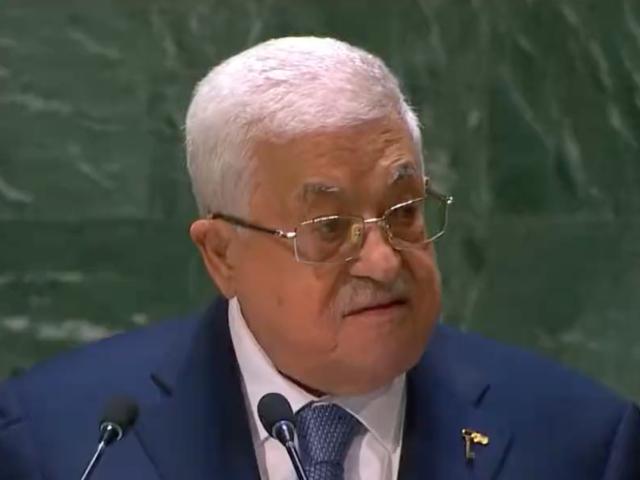In a visit fraught with political significance, Palestinian President Mahmoud Abbas is set to arrive in Ankara on August 14-15, as confirmed by Turkish officials. This visit comes at a time when the region is simmering with tension following the dramatic assassination of Hamas political chief Ismail Haniyeh in Tehran. Abbas’s agenda includes a high-profile meeting with Turkish President Recep Tayyip Erdoğan and a consequential address to the Turkish parliament.
High Stakes and Strained Backdrops
The backdrop to Abbas's visit is anything but ordinary. President Erdoğan had publicly chastised Abbas for his initial silence in response to an invitation to address the Turkish parliament. This criticism was quickly mitigated by the Palestinian Ambassador to Ankara, Faed Mustafa, who conveyed profound appreciation for Turkey’s unwavering support of the Palestinian cause.
Meanwhile: Abbas (who reportedly declined a meeting with Erdogan a few days ago) will visit #Turkey in mid August + is expected to give a speech in 🇹🇷parliament.
— Marion Sendker (@_MarionSendker) August 1, 2024
He condemned killing of #Haniyeh – who was seen as one of the more pragmatic negotiators in #Gaza ceasefire talks. https://t.co/0Th7im7mC3
A High-Profile Assassination
The region was rocked by the assassination of terror leader Ismail Haniyeh who was killed in northern Tehran. Haniyeh was present in Iran to attend the inauguration of the newly elected Iranian President Masoud Pezeshkian. The event also saw the attendance of Turkish Foreign Minister Hakan Fidan, underscoring the deep and intricate ties between NATO member Turkey and the terror facilitating enemies of most other NATO members. Iran has promised severe retribution for the assassination, labeling the act as a catalyst for further regional unrest.
Turkey’s Bold Stance
Turkey's response to the assassination was swift and unambiguous. The Turkish foreign affairs ministry issued a stern condemnation of what they termed the "shameful assassination" of Haniyeh. Highlighting Haniyeh’s close ties with the Islamist President Erdoğan, Turkey emphasized that this attack was an attempt to escalate the Gaza conflict to a broader regional scale. Speculations were rife about Hamas potentially relocating its headquarters from Doha to Ankara in the wake of Haniyeh’s death.
It may be wishful thinking on my part but I'm actually expecting a stronger response from Erdogan over Ismail Haniye's martyrdom. Let's wait and see.
— Ismailoğlu Pasha (@IsmailogluF) August 1, 2024
Ismail Haniye was due to visit Erdogan in Türkiye, along with Mahmud Abbas in Aug.
Ismail Haniye and Erdogan were very close. https://t.co/PxvGDyTqC4
Erdoğan's Pivotal Role
President Erdoğan, who has dreams of restoring an Islamic Caliphate and leading it, has consistently positioned himself as a key regional player and an ardent supporter of the Palestinian cause. His administration has maintained strong ties with Hamas, despite international criticism over his detentè with a known terror group, and Erdoğan himself has often used his platform to advocate for Palestinian rights on the global stage. Erdoğan's scolding of Abbas for his delayed response underscores his desire to play a leading role in Palestinian affairs and regional diplomacy. His involvement in the recent Tehran events, through Foreign Minister Hakan Fidan’s attendance at the inauguration, further illustrates Turkey’s active engagement in the complex web of Middle Eastern politics.
Abbas’s Broader Diplomatic Mission
In an extension of his diplomatic efforts, according to the Times of Israel, President Abbas is also scheduled to visit Saudi Arabia on Sunday for discussions with Crown Prince Mohammed bin Salman. This visit aims to recalibrate Palestinian-Saudi relations and discuss the future trajectory of Middle Eastern politics, especially in light of the ongoing war in Gaza instigated by Hamas’s attack on October 7.
Saudi-Israeli Normalization: A Complex Landscape
The talks in Riyadh come at a critical juncture, with Saudi Arabia deeply involved in negotiations with the Biden administration over a potential normalization deal with Israel. The Kingdom has stipulated that any agreement must include a viable pathway to a future Palestinian state, a condition currently untenable for Israeli Prime Minister Benjamin Netanyahu’s government.
Riyadh has intensified its engagement with the Palestinians over the past two years amid negotiations with the Biden administration about the kingdom signing a normalization deal with Israel. (2/6)
— Jacob Magid (@JacobMagid) August 1, 2024
Strategic Alignment with Washington
With normalization prospects deferred until the next U.S. presidential election, Abbas and bin Salman will seek to align their strategies for dealing with either a Harris or Trump administration come January. The recent assassination of Haniyeh and its implications for the Gaza conflict will be a focal point of their discussions.
Financial Aid and Diplomatic Relations
Ramallah has been keen on restoring Saudi financial assistance, which ceased in 2016. Recent efforts have shown promise, and next week’s meeting is expected to further this agenda. Abbas's previous encounter with bin Salman in Riyadh two months ago laid the groundwork for these crucial talks.
In this volatile and dynamic regional landscape, Abbas’s visit to Ankara and Riyadh underscores the intricate web of alliances and conflicts that define Middle Eastern geopolitics, with Erdoğan's role being central in shaping the narrative and influencing outcomes.


